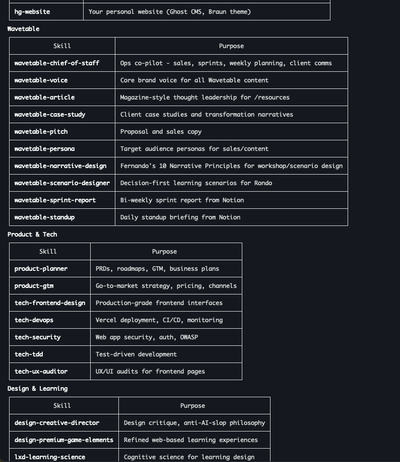What happens when you collapse the talent stack?

What happens when you collapse the talent stack? The answer might make you uncomfortable.
Here's a bit from Scott Belsky, Adobe's Chief Strategy Officer, buried in a newsletter that caught my eye:
"A lot of the magic I've observed in teams over the years happens when the talent stack is collapsed - when a designer also codes, when an engineer has a growth hack skill set, when a product leader is great at copy.
Vertically integrating interdisciplinary collaboration in a single human is f'n awesome, and you should transcend traditional org structures of teams and make exceptions for who you hire when you encounter an opportunity to collapse the talent stack."
But here's what Scott doesn't say out loud: the real disruption isn't in the collapsing - it's in what happens next.
The first wave is the tools:
- A strategist with Figma can prototype their ideas by lunch
- A finance director with Python can automate workflows overnight
- A marketer with Descript can draft an article before the daily huddle
The second wave? That's where it gets interesting: The specialist roles start to dissolve. The silos start to crack. The "I do X" positions begin to feel precarious.
That mid-senior hire you were planning for next quarter? A junior team member just figured out how to do it "good enough" with AI and some YouTube tutorials.
Or rather, that gig you were aiming for next quarter. They just figured out 'good enough' without you. Yup. Uncomfortable.
The conventional wisdom still says "stay in your lane." But the lanes aren't just merging - they're disappearing entirely.
The question isn't if your stack will collapse - it's what you'll do when singular skills no longer command a premium.
What's your plan?


Member discussion